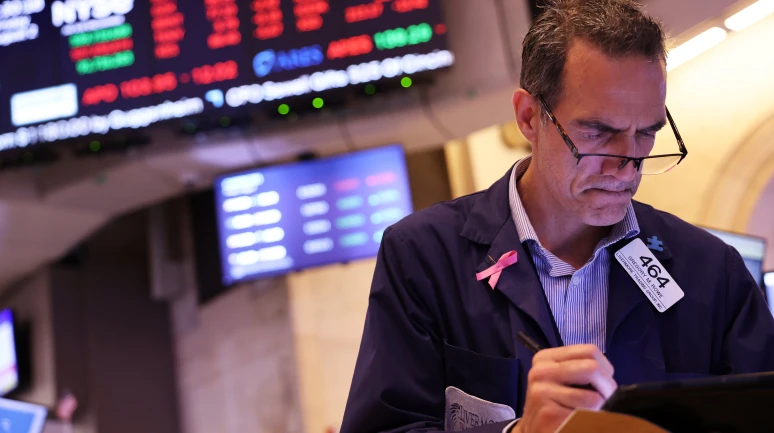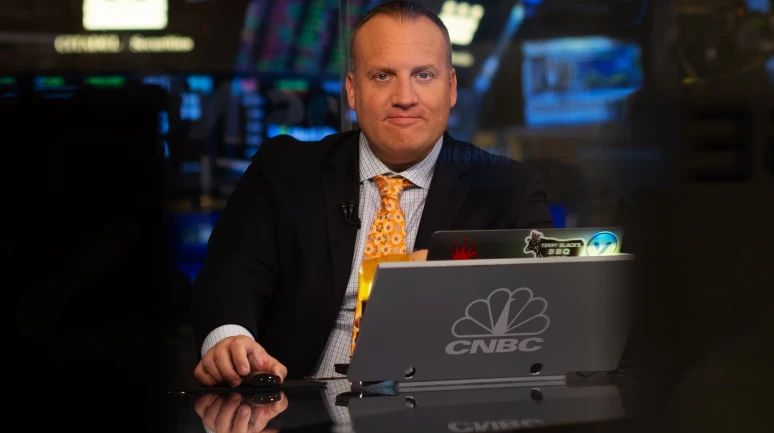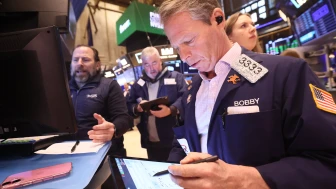The lack of clear direction in trade policies is adding to the overall uncertainty in the market, causing investors to question the stability of the global economy. With the federal deficit on the rise, investors are becoming more cautious about the sustainability of economic growth. As these challenges persist, financial markets are bracing for the possibility of a downturn, prompting investors to carefully monitor the evolving economic landscape for signs of an impending recession.
Market observers are expressing concerns about the potential for further turbulence in the stock market, despite expectations of a brief rebound. Stocks faced continued selling pressure this week, with the S&P 500 briefly entering correction territory, signaling a possible near-term bounce on Wall Street. While the market closed higher on Wednesday, declines resumed on Thursday, with all major averages on track for significant losses by midday. Investors are troubled by the current market conditions and fear an impending wave of sell-offs.
Stocks Enter Correction Territory
This week saw a persistent decline in stock prices, with the S & P 500 briefly entering correction territory, signaling a potential short-term recovery on Wall Street.
The lack of clarity surrounding trade policies, increasing economic uncertainties, and the rising federal deficit are cited as key factors heightening fears of a looming recession. Market experts warn that these risks are not adequately reflected in current market valuations. Vishal Khanduja, head of broad markets fixed income at Morgan Stanley Investment Management, highlighted concerns about potential policy missteps leading to significant downside risks in economic growth, which the market has yet to price in.
Volatility Persists
Although the broad market index closed higher on Wednesday, the downward trend resumed on Thursday, leading to significant week-to-date losses.
While investors generally do not anticipate a recession in 2025 due to the robust household balance sheets, many are reducing exposure to U.S. stocks and turning to safe-haven assets like Treasurys and gold amid market volatility. Trade tensions, exacerbated by ongoing tariff disputes with major economies like Canada, Mexico, China, and Europe, have further clouded the market outlook. The uncertainty surrounding tariffs has left consumers and businesses hesitant, potentially hampering spending and corporate profits.
Investor Apprehensions on the Rise
Investors are increasingly worried about the current market conditions, citing concerns about trade policy uncertainty, economic instability, and the growing federal deficit.
Reports of weakening consumer confidence and warnings from companies like airlines and retailers about the impact of economic challenges on their businesses are adding to the market's anxieties. Investors are closely monitoring economic data for signs of a looming recession, with upcoming reports like the retail sales figures seen as crucial indicators of consumer spending trends.
Recession Fears Mount
Uncertainty surrounding trade policies, economic conditions, and fiscal deficits is fueling fears of a looming recession among investors, who are cautious about potential market repercussions.
In addition to trade concerns and growth outlook, the ballooning U.S. federal deficit is also on the radar of Wall Street. The deficit for fiscal 2025 has already hit a record high, prompting market participants to closely follow developments and statements from officials for insights into deficit management strategies. The unprecedented deficit levels are raising red flags and contributing to the overall market unease.
Shift Towards Safe-Haven Assets
Amid market turbulence, many investors are reducing their exposure to U.S. stocks and turning to safe-haven assets like Treasurys and gold to hedge against market volatility. Market analysts are expressing growing concerns about the future outlook, despite the possibility of a temporary rebound in stock prices.
Key Concerns Impacting the Market
Several factors, including trade tariffs, weakening consumer confidence, and deficit spending, are contributing to the current market unease and influencing investor decisions.
Trade Policy Uncertainty
Trade tariffs have become a pivotal concern for the market, with ongoing trade disputes creating uncertainty that is hindering consumer and business confidence, potentially affecting corporate profitability.
Economic Growth Challenges
Reports of declining consumer confidence are raising red flags about the future growth prospects of the U.S. economy, prompting investors to closely monitor economic indicators for signs of a slowdown.
Deficit Spending Risks
Market watchers are keeping a close eye on the escalating U.S. federal deficit, which has reached record levels, as policymakers' responses to the deficit will impact market sentiment and stability.
Conclusion
In conclusion, the market's current volatility and uncertainties are prompting investors to reassess their strategies and seek refuge in safer investment options amidst a challenging economic landscape.

























